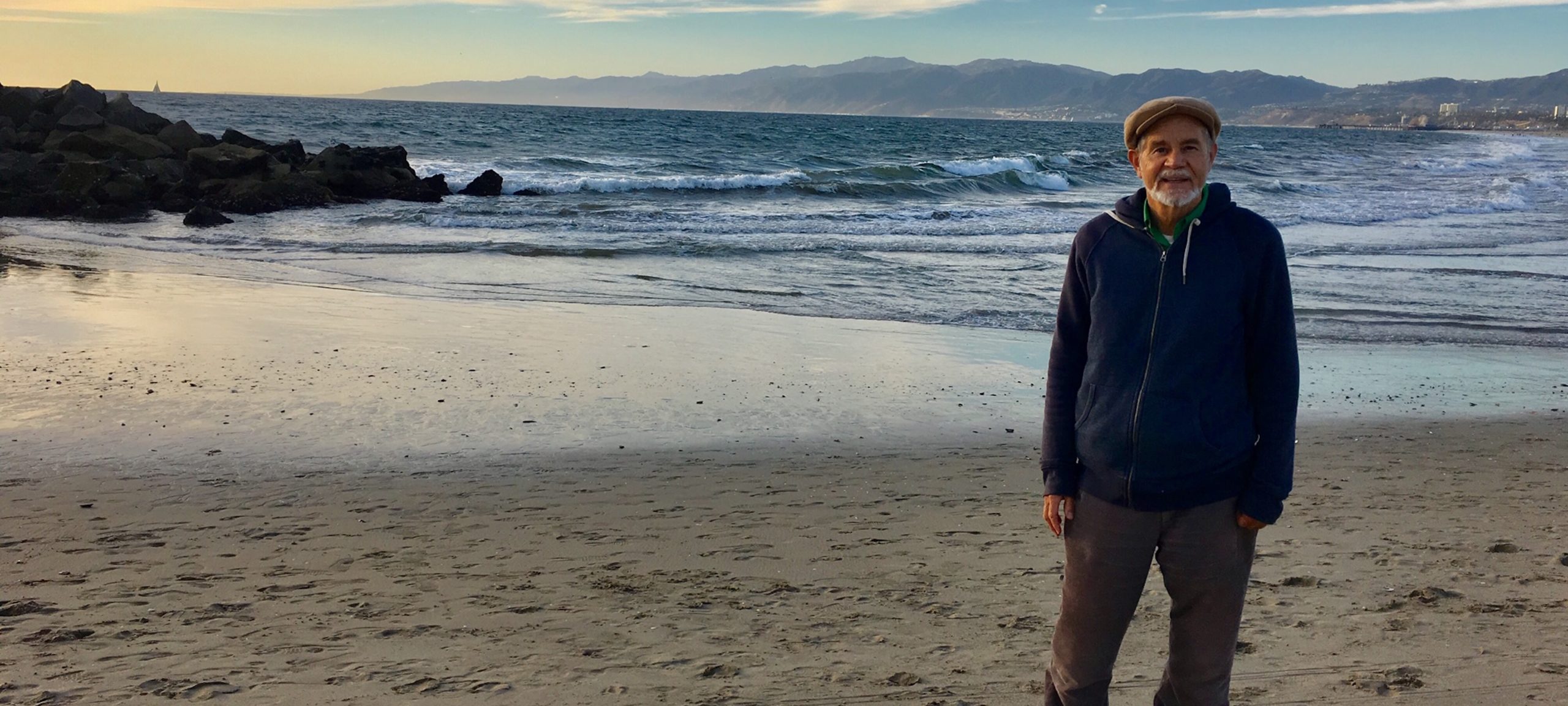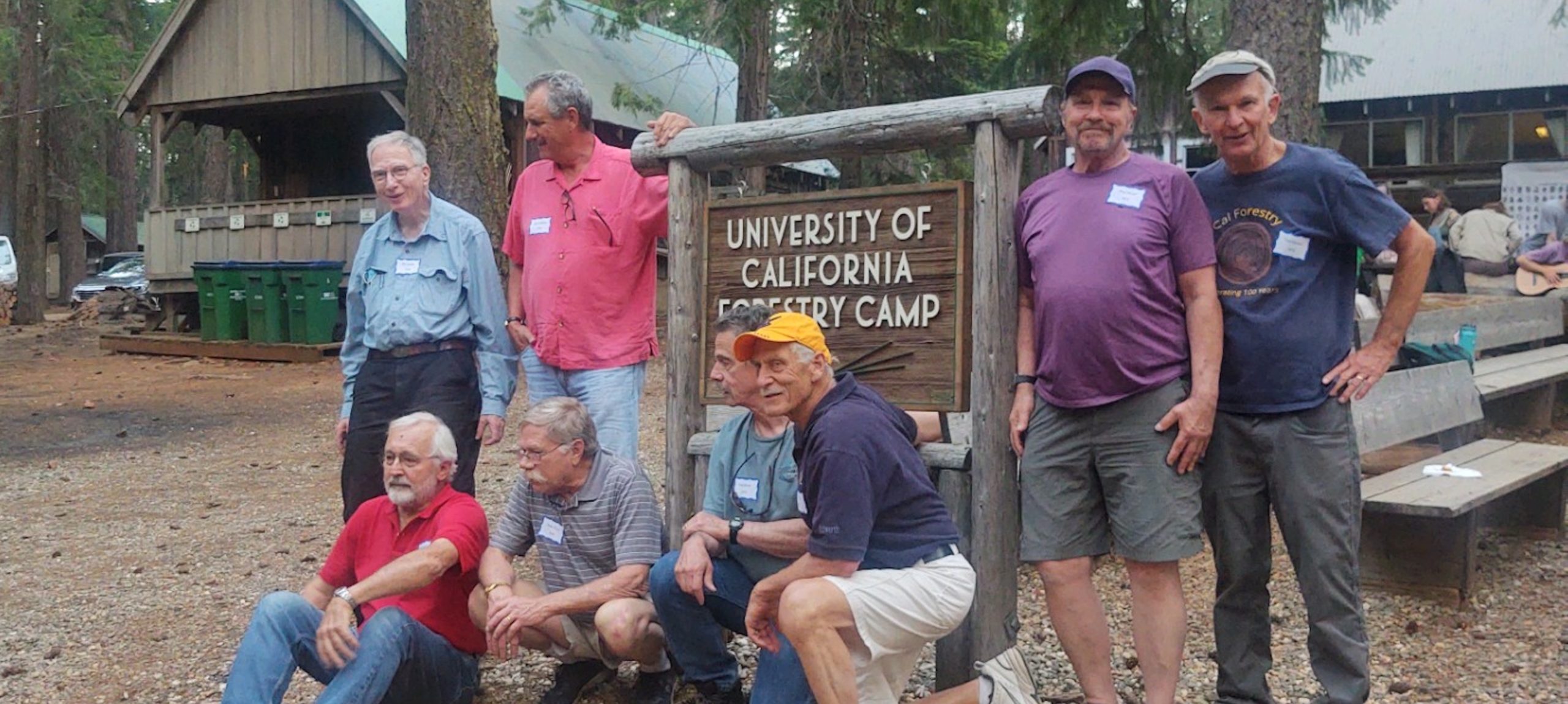Class Notes: 1972

Warm New Year greetings for 2023, everyone! Hope you’re all doing well and progressing along your path. Craig Carpenter Downer was just very impressed with the article about the artist Joan Brown that appeared in the current issue of California. Since he has recently written a published a book that shows a similar copacetic view of life as Joan had/has, he thought he would share this with his fellow UC Berkeleyans. Please check it out at https://ccdownerbooks.com and feel free to comment. It is entitled Wonder Streams of the Soul and has over 500 pages including poems and passages many of which are illustrated with either his or other’s photos. Also, there are paintings and other type illustrations. He thinks dear Joan would appreciate the diverse messages and reconfirmation of the higher spiritual life and the great unity of all sentient beings regardless their outward forms that is convincingly expressed in his book.
The above link is also to another recent book of his The Wild Horse Conspiracy, which champions the cause of America’s wild horses and burros. He is fighting hard to restore these beneficial and pulchritudinous returned natives to viable populations and habitats, as the Wild Free-Roaming Horses and Burros Act has been recklessly undermined. But this can and must change! He has a nonprofit organization — the Andean Tapir Fund / Wild Horse and Burros Fund that is a full fledged 501 c 3. It’s two links are:
https://thewildhorseconspiracy.org.
The wild horse book also has many revealing photos and illustrations and takes a very well-rounded and holistic view. Much of what he learned at UC Berkeley, especially concerning mammals, physiology, ecology, paleontology and wildlife protection and management (upper division class under Dr. A. Starker Leopold) helped him greatly.

While most alumnus highlight the year they graduated from college, former
Cal forestry students often celebrate the year they went to the UC Berkeley
Summer Camp. Summer Camp is an intense introduction to the science of
forestry, covering everything from tree, plant, and soils identification, to
basic forest ecology, watershed management, and silviculture. In 1970, a
diverse group of sometimes long-haired and idealist students began their
forestry professions by attending Summer Camp. This was a period of
social unrest (e.g., Vietnam, Cambodia, Peoples’ Park, Civil Rights
Movement, First Earth Day). The forestry program attracted many because
it had the best ecology program on campus. It was also a close-knit oasis
within the larger Berkeley community, with students and faculty knowing
each other on a first name basis. Fifty year later Camp 1970 members
have reconnected through an ongoing Zoom conversation about forest
wildfires. Most Camp ’70 members bring years of experience as
professional foresters with federal and state agencies, private industry,
universities, and other research and management groups. The current
outlook for forests is grim. Mega fires are becoming an accepted norm.
Twenty-percent of the large beloved Giant Sequoia (Sequoiadendron
giganteum) were lost to wildfires in just one year. On National Forests tree
mortality now dramatically exceeds timber harvest, net tree growth has
plummeted, and the combined effects on wildfire risk and carbon
sequestration are negative. Based our experience with forests and fire, this
group has developed a position paper highlighting the need to manage
forests in the face of unacceptable fuel loads and tree densities
(https://californiasaf.org/2022/03/24/western-wildfire-position-paper-camp-7
0/). We urge other Cal alumni who love California and western forests to
read this position paper and join us to take positive actions to protect the
future of those forests.
George Ice, Ph.D.; B.S. 72, M.S. 73 for Camp70
Camp70foresters@gmail.com













